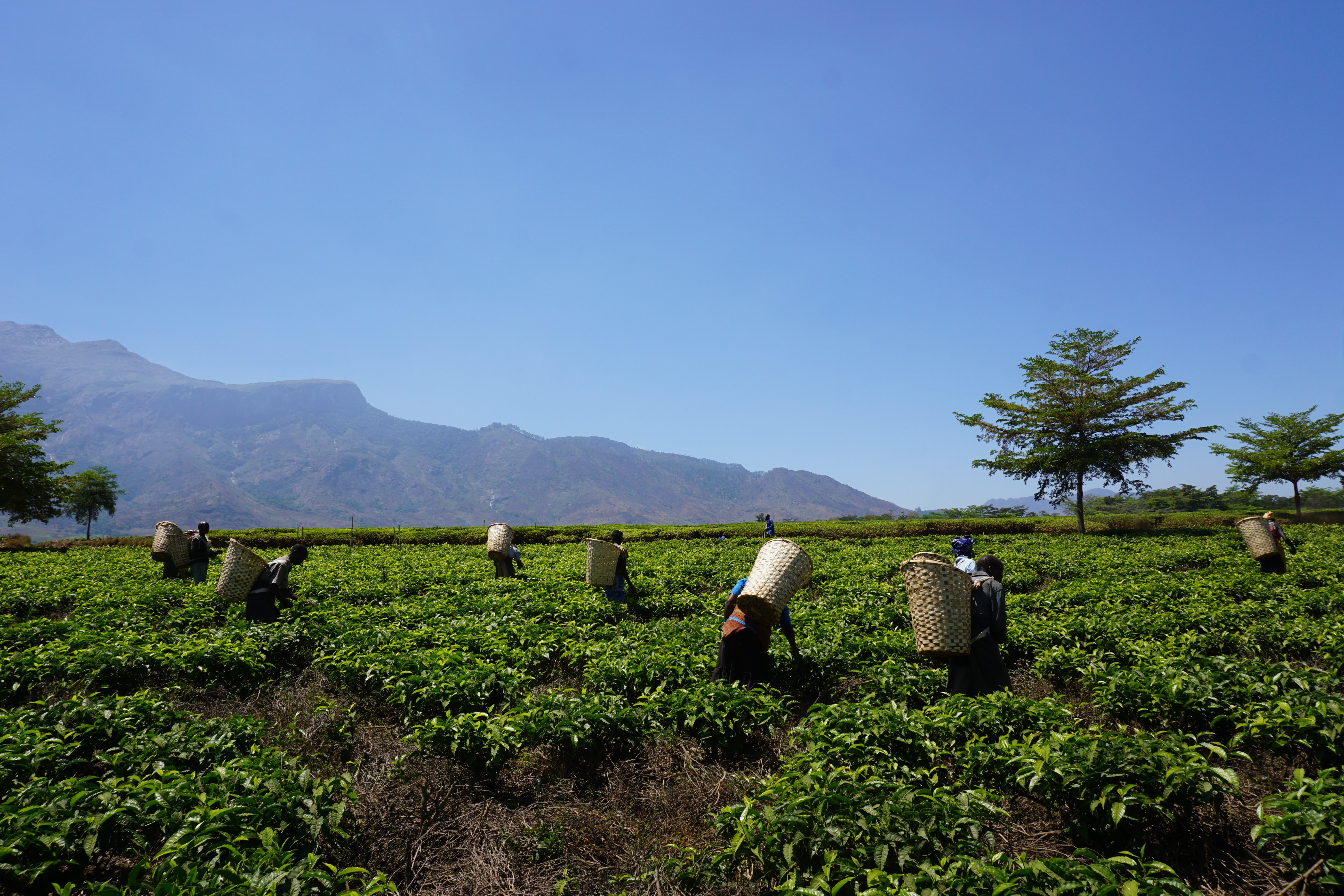How fair trade and water stewardship standards help tea producers build their resilience to climate change in Malawi
Did you know that tea is the most popular drink in the world after water?
And that each cup of tea we drink requires about 34 litres of water to produce?
Tea farmers depend on the rain for their business and their communities’ health and wellbeing.
The Sukambizi Association Trust (SAT) represents over 11,240 smallholder tea farmers in Southern Malawi. The farmers produce about 13 million kg of Fairtrade certified green leaf tea a year – representing 60% of Malawian tea production! And some of this tea makes its way into our morning cuppa here in the UK.
But the farmers are facing increasingly frequent droughts, floods and unpredictable rainfall. Crop yields and profits are down, boreholes are drying up and some people are being forced to rely on contaminated streams for their everyday water supply.
Fairtrade certification has been critically important for the Sukambizi farmers to secure better prices and decent working conditions and receive premium payments to invest in community development. Building on these strong foundations, and with technical support from Water Witness Malawi, the Sukambizi tea farmers are taking action to improve their management of water and build their resilience to climate change.
When it comes to water, everyone’s actions count
Water stewardship is about water users working together to identify and achieve common goals for sustainable water management and shared water security. The International Water Stewardship Standard (AWS Standard) drives, recognises and rewards good water stewardship performance.
‘being good water stewards isn’t only about what you do as an individual, but how you can work with others to achieve better water resource management’
The tea farmers now understand that the water issues affecting their community and livelihoods are inter-connected. They have taken action to ensure that good water management practices are followed by the whole community (e.g. good water, sanitation and hygiene practices, safe waste disposal to avoid polluting water courses etc) as well as better water management in the fields. Training has helped the communities improve their management of boreholes and other water points. A new partnership between the Sukambizi trust and the Mulanje Mountain Conservation Trust will help to improve watershed protection and reforestation through tree planting.
Fairtrade Premiums enables farmers to take action for water security
As a result of years of support from Fairtrade and Rainforest Alliance, the Sukambizi farmers have strong leaders, good governance and a track record in complying with international standard systems. The Premiums received through selling their Fairtrade tea, also means the Trust has funds in place to take immediate action to tackle their community’s water stewardship priorities.
In 2020, the Committee have committed an amazing $190,000 USD towards delivering their water stewardship plans – including constructing 11 community boreholes, 10 school toilets, a water pipe network to those areas without clean and safe water supply, and planting over 200,000 trees. They are keen to move towards full certification of the AWS Standard later this year. Watch this space!
This project was funded under the Scottish Government’s Climate Justice Innovation Fund. For more information about Water Witness or the AWS Standard please see https://waterwitness.org/, follow us on @water_witness or contact us on info@waterwitness.org


